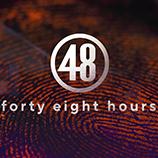203-661-6000
170 Mason Street, Greenwich, CT 06830
Recent Blog Posts
Can I File a Personal Injury Lawsuit if I Was Hurt in a NYC Pedestrian Accident?
 Many New York City residents and visitors traverse the city on foot. Unfortunately, the increased number of pedestrians sharing the roads with vehicles increases the risk of pedestrian knock down accidents. If you or a loved one were injured in a pedestrian accident in NYC, it is important to explore your legal options. A personal injury claim against the at-fault driver may enable you to recover monetary damages while simultaneously holding the driver accountable for the accident.
Many New York City residents and visitors traverse the city on foot. Unfortunately, the increased number of pedestrians sharing the roads with vehicles increases the risk of pedestrian knock down accidents. If you or a loved one were injured in a pedestrian accident in NYC, it is important to explore your legal options. A personal injury claim against the at-fault driver may enable you to recover monetary damages while simultaneously holding the driver accountable for the accident.
Personal Injury Lawsuit Basics
A personal injury claim is a civil claim used to collect damages. Damages are monetary compensation for the harm caused by an injury or death. In some cases, personal injury claims accompany criminal charges brought by the state. However, criminal charges or a criminal conviction are not needed to bring a successful personal injury lawsuit. In New York, most personal injury lawsuits are based on an allegation of negligent or wrongful action.
Legal Options After a Car Accident Caused by Dropped Truck Cargo
 Commercial trucks carry everything from building materials to consumer goods. When truck cargo is not loaded and secured properly, it may become loose or even fall out of the truck during transit. This can cause terrible traffic accidents in which people are severely injured or killed. If you were injured or a loved one was killed in a car accident caused by dropped truck freight, it is important to learn about your legal options.
Commercial trucks carry everything from building materials to consumer goods. When truck cargo is not loaded and secured properly, it may become loose or even fall out of the truck during transit. This can cause terrible traffic accidents in which people are severely injured or killed. If you were injured or a loved one was killed in a car accident caused by dropped truck freight, it is important to learn about your legal options.
Suing a Trucking Company for an Accident Caused by Poorly Secured Freight
The Federal Motor Carrier Safety Administration (FMCSA) has instituted strict requirements for how truck cargo should be loaded and secured. Cargo must be evenly distributed in the trailer or on the truck bed so that the truck’s maneuverability is not adversely affected by the load. The cargo must be tightly secured so that it does not move around during transit. When trucking companies do not follow these rules, cargo may fall out of the truck and spill onto the road below. Cargo may strike a vehicle or become a dangerous obstacle that other motorists must swerve to avoid. If you or a loved one were involved in an accident caused by truck cargo, you may be able to sue the liable party for negligence.
Understanding the Role of Trusts in a Connecticut Estate Plan

Many people equate estate planning with creating a last will and testament. While a will can certainly be a useful estate planning tool, several other estate planning instruments may also benefit you and your loved ones. Trusts are commonly used to transfer assets without needing to go through the probate process. Trusts are especially beneficial for individuals with minor children or wish to leave an inheritance to someone with a disability. Utilizing trusts in your estate plan can also help you protect assets from creditors and minimize estate taxes.
How a Revocable Living Trust May Benefit You and Your Family
There is a trust for almost every estate planning objective a person can have. However, most trusts fall into two main categories: revocable trusts and irrevocable trusts. A revocable living trust is a trust that you establish during your lifetime and use to transfer assets to heirs upon your death. You maintain control over the property in the trust until you pass away. At this point, your successor trustee takes control of the assets and manages the distribution of those assets. Living trusts are revocable or adjustable. Assets transferred through a living trust do not have to pass through probate, meaning that the assets are transferred to beneficiaries more quickly than assets transferred through a will.
Filing a Civil Lawsuit After Being the Victim of a Violent Crime in New York
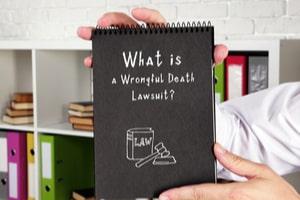
In March 2021, there were over 1600 instances of felony assault and 34 murders in New York City alone. The New York criminal justice system is responsible for holding perpetrators of violence accountable for their horrific actions. While a criminal conviction may result in punitive consequences including imprisonment, criminal penalties do not directly address the harm suffered by the victim or the victim’s surviving family members. A personal injury lawsuit or wrongful death lawsuit may allow for the recovery of damages as well as accountability through the civil legal system.
Filing a Claim Against the Perpetrator of Violence
Per New York law, a personal injury or wrongful death claim may be filed when:
-
An injury or death is caused by negligence or wrongdoing and
-
Damages resulted from the injury or death
Establishing Power of Attorney in Connecticut or New York

It can be an uncomfortable subject to consider, but life is finite. Eventually, everyone passes away. Often, an individual’s death is preceded by an incapacitating illness or injury. If you ever become incapacitated and unable to speak for yourself, who would you want to speak on your behalf? A power of attorney is an important estate planning instrument that authorizes someone to speak on your behalf regarding medical or financial concerns. Establishing power of attorney is a crucial component of a comprehensive estate plan.
Power of Attorney for Property and Healthcare
If you are disabled and unable to communicate, you need someone to manage medical and financial decisions for you. A power of attorney assigns decision-making authority to a person called an agent. The agent is someone that you trust to make the same types of decisions that you would make if you were able to do so. A financial power of attorney or general power of attorney assigns financial decision-making authority. The scope of the agent’s financial responsibilities may be broad or limited. The agent is required to make decisions that follow the parameters established by the power of attorney document.
What Is Involved in a Personal Injury Case?
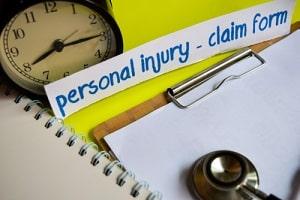
You probably already know that personal injury cases are intended to help injured clients recover financial compensation for damages. Medical expenses, lost income from missed work, reduced earning capacity, pain and suffering, and loss of enjoyment of life are all damages for which an injured person may receive compensation. You may be less sure of how the personal injury claim process actually works. What are the steps involved in an injury case? How long do personal injury cases take to resolve? Will I have to go to court? These are all questions that vary from case to case. However, most personal injury cases follow the same basic steps.
Initial Investigation and Sending a Demand Letter
Whether you are interested in filing a personal injury claim after a car accident, assault, construction site accident, or another injury-causing incident, typically, the first step is investigating the cause of the injury. Your personal injury lawyer will ask you questions about the accident or incident. Next, he or she will start to gather evidence like police reports and records of medical treatment that you have received for your injuries.
What Employers Need to Know About Confidentiality Agreements

Non-disclosure agreements (NDAs) are legally enforceable contracts that establish a confidential relationship between two parties. NDAs or confidentiality agreements are a valuable tool for employers in every industry. Business owners may use NDAs to protect important information from being misused by potential investors, employees, consultants, or other parties. If a party violates the terms of a confidentiality agreement, the non-breaching party may be able to take legal action and pursue restitution.
How Can a Non-Disclosure Agreement Protect My Business?
In the course of business, business owners often disclose sensitive information to others. Employees are often privy to confidential information about clients, products and services, trade secrets, business strategies, and more. Through a non-disclosure agreement, you can require employees to keep this information confidential. NDAs are often required as a condition of employment or they may be part of a severance package. A confidentiality agreement may also be part of a settlement agreement. NDAs are often subject to misunderstandings, but these contracts are important legal instruments that have a wide range of uses. However, NDAs must meet certain criteria to be enforceable, so it is important to work with a skilled attorney when drafting non-disclosure agreements.
Truck Accidents Involving Hazardous Materials or Flammable Liquid

Large commercial trucks are responsible for hauling most of the freight that is transported across the United States. While any truck accident can lead to severe injuries and death, accidents involving trucks that are transporting hazardous or flammable material are often especially gruesome. If you were injured or a loved one was killed in a hazardous materials truck accident, it is important to know your rights. You may be able to hold the at-fault party accountable and recover financial compensation for your damages through a personal injury lawsuit.
Trucks Carrying Hazardous Materials Must Comply With Strict Safety Standards
The Federal Motor Carrier Safety Administration (FMCSA) categorizes hazardous materials into several different groups. Trucks carrying hazardous material must be labeled with a placard identifying the type of hazardous material being hauled. Hazardous materials fall into the following nine categories:
Am I Entitled to Compensation for Injuries in a Shared Fault Accident?
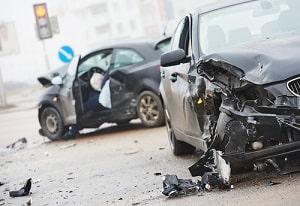
A personal injury claim can enable an injured person to recover financial compensation for medical expenses, property damage, lost income, pain and suffering, and other damages. However, in order to receive financial compensation through a personal injury claim, the plaintiff must establish the defendant’s negligence or wrongdoing. Whether an injury results from a vehicle collision, truck crash, construction accident, or another incident, there is usually a multitude of factors that contribute to an injurious accident. The injured person’s own actions may even contribute to his or her injury. In cases of shared liability for an injury-causing accident, is the injured person still entitled to compensation?
Connecticut Law Regarding Shared Liability for a Personal Injury
Understanding Personal Injury Claims Based on Intentional Torts
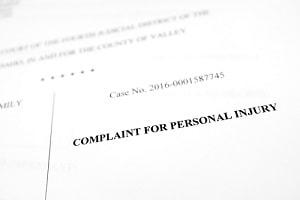
A personal injury claim is a civil legal action that an injured individual may take against the party that injured him or her. Many personal injury claims are based on the concept of “negligence” or carelessness. Most car accidents, premises liability, and product liability claims are negligence-based claims. However, a personal injury claim may also be founded upon an intentional tort such as an assault, battery, or homicide.
Civil Claims Based on Intentional Wrongdoing
Most personal injury claims are founded upon an accusation of negligence. In a negligence-based claim, the plaintiff must prove that the defendant’s careless or irresponsible actions caused him or her harm. A personal injury claim may also be founded upon an intentionally harmful act such as:


